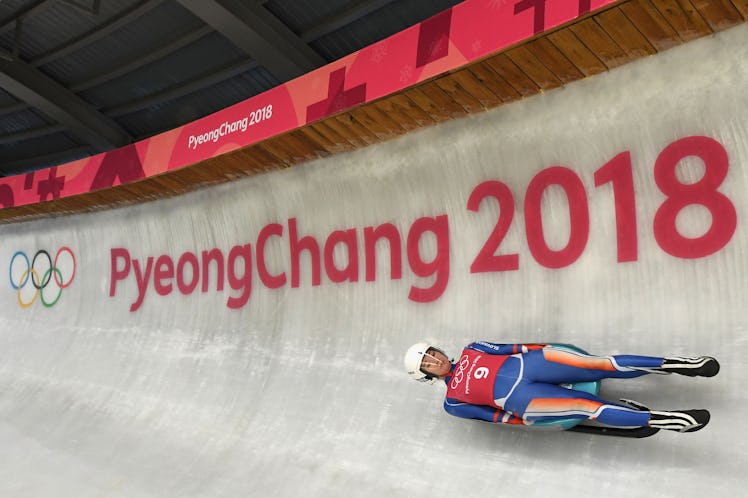
The Winter Olympics Aren't Ending Immediately, So Watch & Enjoy
If you've had a glimpse of any news broadcast lately, you've probably been tipped off by now about the start of the 2018 Winter Olympics. The games will kick off on Friday, Feb. 9, in PyeongChang, South Korea, where athletes from over 90 countries will compete for the famous Olympic medals. As for when the 2018 Winter Olympics will end, well, that question can be answered the same way it always has.
The closing ceremony for each iteration of the Olympic games, both the summer and winter editions, occurs 16 days after the opening ceremony. Therefore, the 2018 Winter Olympics in PyeongChang are scheduled to end on Sunday, Feb. 25.
Similar to the date of each closing ceremony for Olympic games, the course of the actual ceremony is determined by tradition as well.
On that Sunday, the 35,000-capacity Pyeongchang Olympic Stadium will host the parade of nations, which marks the beginning and end of each period of Olympic competition. The Olympic flame will be extinguished and the Olympic flag will be lowered and removed, before being handed to a representative of Beijing, China, the host city for the next Winter Olympic games.
Like the parade of nations, the handing off of the Olympic flag is a tradition that occurs as all closing ceremonies for the Olympics.
Several officials from around the world are expected to be in attendance at the closing ceremony. President Donald Trump won't be one of them, however, first daughter and White House adviser Ivanka Trump has been selected to lead a delegation at the closing ceremony to represent the president.
The closing ceremony will be aired on television by NBC, while the rest of the games' events will be broadcast across NBC's family of networks.
Between Friday's opening ceremony and the closing ceremony on Sunday, Feb. 25, PyeongChang is set to host over 100 competitions for medals, derived from the 15 sports that are included at the Winter Olympics.
One of the most popular sports, hockey, will see some significant changes. This year, players from the National Hockey League won't be featured at the Olympic games, as they have in years past. The reason why is straightforward, too: The NHL's leadership didn't think allowing players to compete at another event was worth the cost of potential injuries or delays to the end of the season.
“The players are extraordinarily disappointed and adamantly disagree with the NHL’s shortsighted decision not to continue our participation in the Olympics,” a statement from the NHL players' association read. “Any sort of inconvenience the Olympics may cause to next season’s schedule is a small price to pay compared to the opportunity to showcase our game and our greatest players on this enormous international stage.”
Other headlines at the PyeongChang Olympics include the return of 33-year-old Lindsey Vonn. In 2014, Vonn missed the Sochi Winter Olympics because of injuries, which means she'll be attempting to win a gold medal for the first time in eight years, having done so at the Vancouver Winter Olympics in 2010.
Such comebacks at the Olympics are rare, especially for veteran athletes like Vonn, who has been battered and bruised by injuries ever since she first competed at an Olympics 16 years ago.
"I have a huge metal rod in the whole length of my arm,’’ Vonn told New York Times Magazine. ‘‘I lost feeling in my hand for several weeks. It was lifeless.
You can check out whether she wins gold again by tuning into her packed scheduled at the Olympics. Or, you can just wait to see if Lindsey Vonn wears a medal around her neck at the closing ceremony on Sunday, Feb. 25.